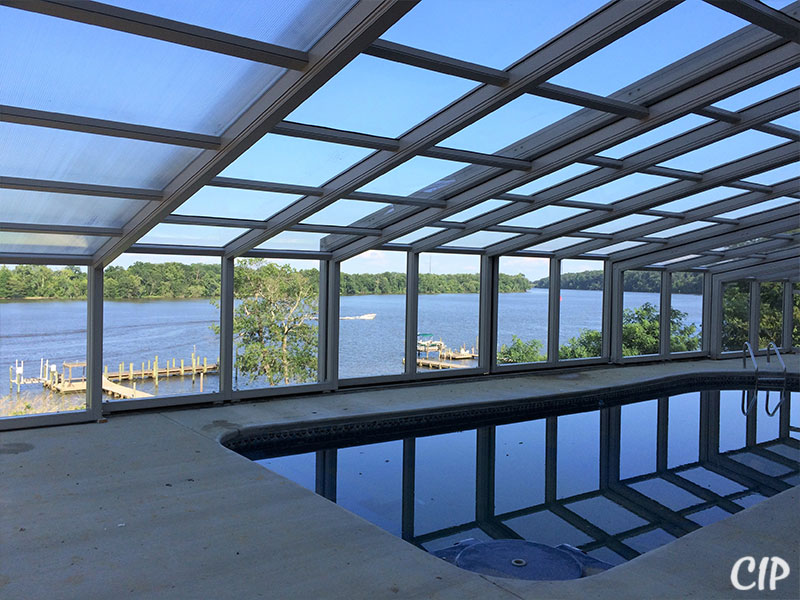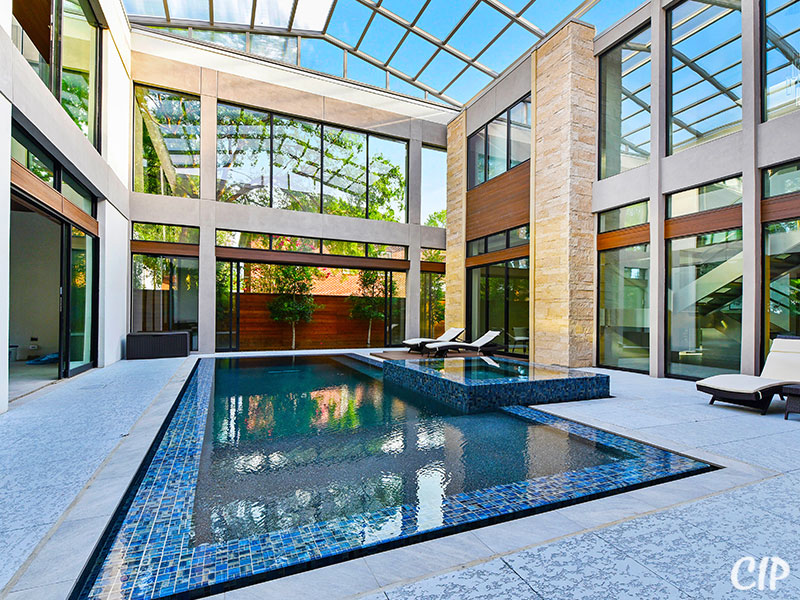Selecting the right size swimming pool is a crucial decision that can greatly impact your outdoor living experience. Let’s dive into the factors to consider when determining the ideal pool size for your home.
Assessing Available Space and Landscape Features
Begin by meticulously evaluating the available space in your backyard or property, considering factors such as dimensions, layout, and existing landscape features that may influence the size and shape of your pool.
Defining Your Pool’s Purpose and Usage Patterns
Contemplate how you envision using the pool, whether it’s for relaxation, exercise, entertaining guests, or a combination of activities. Understanding your pool’s intended purpose will help determine the appropriate size to accommodate your usage patterns.
Considering Your Lifestyle and Recreational Preferences
Take into account your lifestyle and recreational preferences, such as whether you prefer a more active or leisurely approach to swimming. Tailoring the size of your pool to suit your lifestyle ensures optimal enjoyment and satisfaction.

Factoring in Family Size, Dynamics, and Guest Usage
Consider the size and composition of your family, as well as any regular visitors or guests who will use the pool. A larger family or frequent entertainers may necessitate a larger pool to accommodate everyone comfortably.
Future Planning and Adaptability
Anticipate future changes in your family’s needs and lifestyle, such as children growing up or lifestyle adjustments. Opt for a pool size that can adapt to these changes over time and accommodate future additions or modifications.
Budget Considerations and Financial Planning
Establish a comprehensive budget for your pool project, encompassing both construction and maintenance costs. Factor in ongoing expenses like water treatment, cleaning, and repairs, and select a size that aligns with your financial resources and long-term affordability.
Aesthetic Harmony with Home and Landscape Design
Consider how the pool will integrate with your home’s architecture and landscaping to enhance overall aesthetic appeal. Choose a size and shape that harmonizes with your outdoor environment and creates a cohesive and visually pleasing outdoor living space.
Safety and Accessibility Features
Ensure that the pool size allows for the implementation of essential safety measures and accessibility features, particularly if you have children, elderly family members, or individuals with mobility challenges. Leave ample space around the pool for safety barriers and consider features like shallow areas or handrails for easy access.
Environmental Sustainability and Energy Efficiency
Minimize the environmental impact of your pool by choosing a size that optimizes water usage and energy consumption. Explore eco-friendly features such as solar heating systems or energy-efficient pumps to reduce your carbon footprint and promote environmental sustainability.
Seeking Professional Expertise and Guidance
Consult with experienced pool professionals, including designers and contractors, who can provide valuable insights and recommendations tailored to your specific needs and preferences. Leveraging their expertise will help you navigate the decision-making process and ensure you select the perfect swimming pool size for your home.

Entertainment and Social Gatherings
Consider the frequency and size of social gatherings you plan to host around your pool. A larger pool provides more space for guests to swim and socialize comfortably, enhancing the overall entertainment experience.
Health and Fitness Goals
If you have specific health and fitness objectives like regular swimming workouts or aquatic therapy, ensure your pool size accommodates these activities. A larger, deeper pool allows for diverse exercise routines and promotes physical well-being.
Accessibility and Safety Considerations
Prioritize safety by ensuring your pool size allows for proper safety measures and accessibility features. Leave sufficient space for safety barriers, such as fences or pool covers, and consider adding features like handrails or zero-entry designs for accessibility.
Local Climate and Weather Patterns
Consider your local climate when selecting a pool size. In warmer regions, a larger pool provides relief from the heat, while in cooler climates, a smaller pool may suffice for occasional use or seasonal enjoyment.
Resale Value and Property Appreciation
Factor in the impact of pool size on your property’s resale value and market appeal. A well-proportioned pool enhances the aesthetic and recreational value of your property, potentially increasing its marketability and appreciation over time.
Pool Shape and Design Flexibility
Explore various pool shapes and designs to maximize space utilization and visual appeal. Customizable shapes offer design flexibility to fit your property’s layout and complement your landscaping, enhancing the overall aesthetic of your outdoor space.
Water Features and Enhancements
Enhance your pool experience with additional features like spas, waterfalls, or built-in seating areas. These enhancements add visual interest and functionality, transforming your pool into a luxurious retreat for relaxation and entertainment.
Privacy and Screening Options
Create a private and serene pool environment with landscaping features like hedges, trees, or privacy screens. These elements provide seclusion from neighboring properties and enhance the ambiance of your outdoor oasis.
Pool Use Restrictions and Regulations
Ensure compliance with local regulations and restrictions governing pool size, placement, and construction. Obtain necessary permits and consult with professionals to navigate regulatory requirements and ensure a smooth pool installation process.
Personal Preferences and Lifestyle Enhancements
Ultimately, prioritize your personal preferences and lifestyle enhancements when choosing a pool size. Whether you seek a tranquil retreat for relaxation or a vibrant space for socializing, select a size that aligns with your vision and enriches your outdoor living experience.

Environmental Sustainability and Energy Efficiency
Consider the environmental impact of your pool size and opt for energy-efficient features to minimize resource consumption. Choose a size that balances water usage and energy needs, and explore eco-friendly options such as solar heating or LED lighting to reduce your carbon footprint. Prioritizing sustainability ensures your pool remains environmentally responsible and cost-effective in the long run.
Maintenance Requirements and Costs
Take into account the maintenance needs and associated costs of your chosen pool size. Larger pools generally require more cleaning, chemical treatments, and upkeep, which can increase maintenance expenses over time. Consider your ability to manage ongoing maintenance tasks and budget accordingly to ensure your pool remains clean, safe, and well-maintained for years to come.
Choosing the right size swimming pool involves careful consideration of space availability, budget constraints, lifestyle preferences, and future plans. By weighing these factors and seeking professional advice, you can select a pool size that enhances your outdoor living space and provides years of enjoyment for you and your family.

